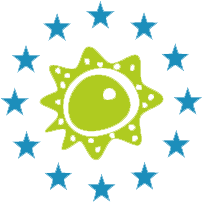Plenaries at ESCAIDE 2025
Plenary A: High stakes, low certainty: Post-Normal Science in public health governance
Day 1 - Wednesday 19 November, 9:25-10:25
Traditional science-based policy approaches often prove inadequate during health emergencies, when facts are uncertain, values are plural, stakes are high, and decisions are urgent. In such situations, the usual separation of facts from values becomes untenable.
This session features philosopher of science Silvio Funtowicz, who will explore Post-Normal Science perspectives on decision-making when conventional scientific approaches reach their limits. He will illustrate how in real-life scenarios, the pursuit of absolute truth gives way to the notion as fitness for purpose, fostered through dialogue between experts and extended peer communities. Funtowicz will argue that in high-stakes public crises and emergencies—marked by complexity, uncertainty, and value conflicts—science should help create just, responsible, and anticipatory knowledge, rather than strive for perfect predictions and impossible total control over policy actions.
Chairs
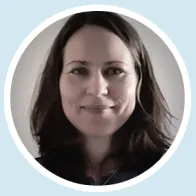
Ágnes Hajdu

Henriette de Valk
Speaker

Silvio Funtowicz
Silvio Funtowicz began his career teaching mathematics, logic and research methodology in Buenos Aires, Argentina. During the 1980s, he was a Research Fellow at the University of Leeds, England. He was a scientific officer at the Joint Research Centre of the European Commission (EC-JRC) until his retirement in 2011. From February 2012 until April 2021, he was an Adjunct Professor at the Centre for the Study of the Sciences and the Humanities (SVT) at the University of Bergen, Norway, where he is now a guest researcher. He is also co-Director of the European Centre for Governance in Complexity (ECGC), a non- profit organisation that promotes academic research and public debate on issues and institutions of public governance and how they perform in conditions of complexity.
Plenary B: Science-based leadership in public health: decisions under pressure
Day 1 - Wednesday 19 November 17:00-18:30
Science-based public health leadership during infectious disease emergencies involves complex decision-making where scientific knowledge provides important but incomplete answers. Leaders must make urgent decisions to protect population health when evidence is emerging, uncertain, or disputed, while managing competing demands, cultural values, and limited resources. In an era of populism and misinformation, promoting evidence-based policy requires balancing scientific accuracy with governance realities.
This session features a moderated debate with panellists from healthcare, policymaking, and public health backgrounds. Following brief opening reflections based on personal experiences, the discussion will explore key challenges at the intersection of science, policy, and leadership. The debate will address decision-making during health emergencies, including setting priorities under pressure and maintaining evidence-based approaches when scientific facts compete with political and social pressures for public attention and trust.
Chairs

Bruno Ciancio
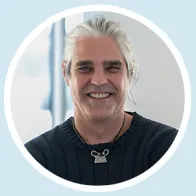
Jacobo Mendioroz Peña
Speakers

Alemka Markotić
Alemka Markotić is a Croatian physician, scientist, professor at the Faculty of Medicine at the University of Rijeka and Faculty of Medicine, Catholic University of Zagreb. She is also director of the University Hospital for Infectious Diseases "Dr. Fran Mihaljević" in Zagreb, where she founded the Centre for Emergent and Re-Emerging Infectious Diseases.
Throughout her career she has worked at the Institute of Immunology in Zagreb, has founded the Croatian Society for Biosafety and Biosecurity at the Croatian Medical Association, and she is a president of the Croatian Academy of Medical Sciences and a domestic member of the Academy of Sciences and Arts of Bosnia and Herzegovina. She has received a total of seven national and nine international awards for her research so far. Since 2020, she has been a member of the Civil Protection Headquarters of the Republic of Croatia, with a significant role in containing the coronavirus epidemic, EU Scientific Advice Platform and some other EU and international COVID-19 bodies.
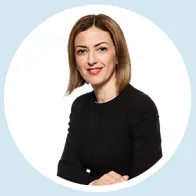
Eirini Agapidaki
Eirini Agapidaki is a Psychologist, with an MSc in Health Promotion and Education from the Medical School of the National and Kapodistrian University of Athens; and a PhD in Health Psychology from the same university. She has also specialised in matters of prevention of mental disorders and promotion of mental health.
In addition, she has many years of teaching and research experience in the fields of public health policy, public health research methodology and mental health promotion – in the context of national, European and international research programs. She has worked for many years as a research associate at the Department of Hygiene, Epidemiology and Medical Statistics, of the Medical School of the National and Kapodistrian University of Athens. In recent years she was elected and served as a Lecturer in Public Health at the Medical School of the European University of Cyprus.
In 2019, she resigned from her academic role to take up her duties as the Special Secretary for the Protection of Unaccompanied Minors (at the Ministry of Migration and Asylum). At the end of December 2022, she assumed the duties of Secretary General of Public Health, and since July 2023 she serves as the Alternate Minister of Health and as a member of the Greek Parliament.
She has written and published research papers in peer-reviewed scientific journals, while she has presented the results of her research papers at many national and international conferences.
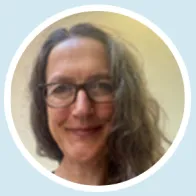
Karin Maria Nygård
Karin Nygård, DVM, PhD, is a special adviser at the Norwegian Institute of Public Health (NIPH). She joined the EPIET programme in 2000 and has extended experience from her work at the Norwegian Institute of Public health with epidemic intelligence activities, outbreak investigations, One Health collaboration and general work to strengthen public health preparedness, both at national and global level. She has authored several scientific publications in this area.
During the pandemic, she was in the outbreak team lead in the NPHI responsible for coordinating surveillance and knowledge production for evidence-based pandemic management.
After the covid-19 pandemic she worked in the MOH with public health and preparedness, including contributing to the first white paper on health preparedness in Norway.
Currently she is working as a preparedness coordinator at the NIPH and is involved in preparedness and response activities both at national and international level, including as ECDC National focal point for preparedness and response and as expert in the technical working group on preparedness under the Health Security Committee.
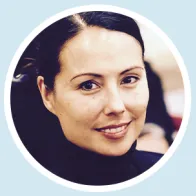
Tanja Kuchenmüller
Tanja Kuchenmüller, PhD, M.A., MSc, heads the Evidence to Policy and Impact unit in the Research for Health Department/Science Division at WHO. Her unit has a dual mandate: (1) to build country capacity in generating, translating, and applying research evidence in policies and practices, and (2) to provide strategic leadership on research policies that promote access and support scale-up.
Previously, she led knowledge translation work at the WHO Regional Office for Europe and coordinated a unit on Knowledge Management, Evidence and Research for Policy-Making. Before joining WHO, she worked in the HIV/AIDS field for the United Nations Development Programme and the German Development Service.
Plenary C: The third pillar of One Health: why environment can't be an afterthought
Day 2 - Thursday 20 November 9:00-10:30
The One Health approach recognises the interconnectedness of human, animal, and environmental health, yet the environmental dimension is frequently overlooked in public health planning. This represents a missed opportunity as environmental systems crucially influence health risks and disease emergence, particularly for threats like climate change and antimicrobial resistance.
Drawing on EU Member States’ experiences, speakers will explore how environmental systems influence health risks and examine the potential of environmental surveillance, including wastewater monitoring, for early warning. Through case studies and practical examples, the discussion will address how integrated surveillance and preparedness planning can be strengthened, offering policy recommendations and lessons learned to guide further action.
Chair
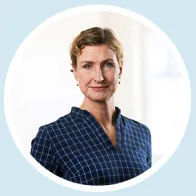
Tyra Grove Krause
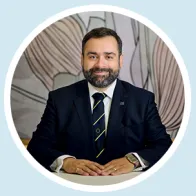
Carlos das Neves
Speakers

Jan Semenza
Jan C. Semenza is an environmental epidemiologist renowned for his pioneering work at the nexus of climate change and public health. Early in his career, as an Epidemic Intelligence Service Officer at the U.S. Centers for Disease Control and Prevention (CDC), he led the CDC response to the devastating 1995 Chicago heat wave—an event that claimed over 700 lives—where he investigated the medical, environmental, societal, and behavioural factors driving heat-related mortality and morbidity. As part of his work with the regional offices of World Health Organization (WHO) including EURO, PAHO, and EMRO, he provided technical and scientific advice to the countries within their region. He conducted public health projects in Uzbekistan, Sudan, Egypt, Denmark, Brazil, and Haiti through CDC, WHO, US Agency for International Development (USAID), and non-governmental organizations. More recently, Semenza served as the Head of the Health Determinants Section at the European Centre for Disease Prevention and Control (ECDC), where he led efforts integrating climate change insights into infectious disease surveillance and risk assessment. Semenza is a lead author on the IPCC Sixth Assessment Report (AR6) and co-leads Working Groups 1 and 2 of the Lancet Countdown in Europe that aims to develop indicators for climate change impacts as well as indicators for adaptation, planning, and resilience for health. In addition, he holds affiliations with Umeå and Heidelberg Universities.

Frank Møller Aarestrup
Since 1995, Frank Møller Aarestrup has led the antibiotic resistance group at the DTU Food Institute. Following the completion of his veterinary degree, he has worked extensively across various domains of microbiology and epidemiology, with a focus on both animal and human pathogenic bacteria.
Over the past 13 years, his research has primarily centred on the surveillance and dissemination of antibiotic resistance, the characterisation of resistant bacteria and resistance genes, and the optimisation of antibiotic use. While his work has largely concentrated on foodborne pathogens from a global perspective, his scope has broadened in recent years to encompass additional areas of concern.
He is responsible for resistance determinations related to the national monitoring of antibiotic resistance in animals. He has served as project manager for several national initiatives involving multiple institutions and has coordinated an EU-funded concerted action comprising 19 laboratories across 18 European countries.
Since 2006, Professor Aarestrup has headed both the WHO Collaborating Centre for Antimicrobial Resistance among Foodborne Pathogens and the Community Reference Laboratory for Antimicrobial Resistance in bacteria from animals and food.

Boudewijn Catry
Boudewijn Catry specialises in antimicrobial resistance in human medicine, with a particular focus on antimicrobial stewardship and the transmission from the animal sector and vice versa. He began his career as a veterinary surgeon and researcher (°2005 PhD) at Ghent University before joining Sciensano in 2007 where he has been the head of Healthcare-associated Infections & Antimicrobial Resistance since 2009, playing an active role in national and international infection prevention and control initiatives. Catry, a co-founder of hospital outbreak control teams, has also been teaching different public health classes at Université libre de Brussels since 2018.

Gerardo Sanchez Martinez
Gerardo Sanchez is an Environment and Health Expert at the European Environment Agency in Copenhagen. His work focuses on the impacts of environmental and social determinants on health, the environmental burden of disease and prevention policies. Prior to joining the EEA, he worked for the UNEP DTU Partnership, the World Health Organization, the World Bank and the Massachusetts Department of Public Health, and has been stationed in the USA, Japan, Peru and Germany.
Plenary D: One bird, two stones: veterinary and human health collaboration in action
Day 2 - Thursday 20 November 17:00-18:30
Effective outbreak response to zoonoses depends on close coordination between veterinary and human health sectors, yet achieving seamless collaboration between these traditionally separate domains remains a significant operational challenge. Recent outbreaks, particularly of avian influenza, have highlighted both the potential for successful cross-sector collaboration and persistent gaps in communication, surveillance systems, and response protocols.
Through real-world case studies from recent outbreaks, speakers will share examples of cross-sector collaboration, highlighting successes and challenges in surveillance and response. The discussion will focus on practical lessons for strengthening operational collaboration, presenting recommendations for joint surveillance systems, outbreak investigation protocols, and integrated risk assessment approaches.
Chairs
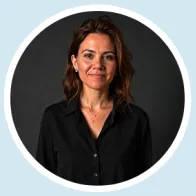
Angeliki Melidou

Carlos das Neves
Speakers
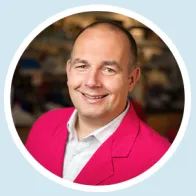
Richard Webby
Richard Webby completed his PhD from the University of Otago, New Zealand, before joining St Jude Children’s Research Hospital, Memphis, US. He is currently a Member of the Department of Host Microbe Interactions at St Jude where he has a research programme focused on influenza at the human animal interface. He is the Director of the WHO Collaborating Center for Studies on the Ecology of Influenza in animals and the St Jude Center of Excellence for Influenza Research and Response. In these roles he participates in One Health responses and preparedness for influenza virus threats.
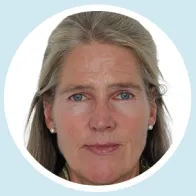
Andrea Gervelmeyer
Andrea is a German veterinary doctor and infectious disease epidemiologist. She worked in national public health and food safety authorities before joining EFSA in 2009, where she has been responsible for emerging risk identification, crisis preparedness and animal health. Her special interests are zoonotic diseases and One Health, and she currently leads a large network of European countries carrying out surveillance in animals and the environment for zoonotic pathogens that threaten public health. Andrea is an EPIET alumnus (cohort 8).

Alice Fusaro
Alice Fusaro is a computational biologist at the Viral Genomics and Transcriptomics Laboratory at the IZSVe in Padua, Italy. She coordinates sequencing and genetic analyses of emerging and zoonotic RNA viruses responsible for the major diseases of animals. Her current research focuses on evolutionary genetics, with special emphasis on the major mechanisms of virus evolution, the molecular epidemiology of important emerging pathogens and the roles played by mutations, natural selection, recombination, and gene flow in shaping patterns of genetic diversity on RNA viruses. She actively participates in various national and international research projects and collaborates with international and European organisations such as FAO, EFSA, and ECDC.
She has authored or co-authored over 130 articles published in national and international journals.
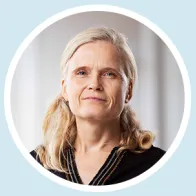
Ramona Trebbien
Doctor of Veterinary Medicine (DVM), PhD, Senior Scientist.
Head of Section for Influenza and respiratory viruses at Statens Serum Institut, Denmark which is the National Influenza Center for WHO and National Reference Laboratory for human and animal influenza viruses as well as respiratory syncytial virus (RSV).
Ramona Trebbien has been working in the field of virology since 2003, and started at The National Food Institute working with foodborne viruses, before entering into the world of Influenza at the National Veterinary Institute in 2006. In 2013 she expanded her expertise to influenza in humans at Statens Serum Institut, and is now in charge of the One Health influenza laboratory at Statens Serum Institut, where the animal and public health virology was merged in 2020.
Her research is especially focused on the zoonotic aspects of influenza A virus, and the evolutionary dynamics of influenza virus and RSV. A key component of this work is the investigation of viral genetics, phenotypic characteristics and antigenic drift, due to its role in host specificity, viral immune escape and antiviral resistance.
Plenary E: Health for all: equity challenges in accessing essential health services
Day 3 - Friday 21 November 9:20-10:45
Access to preventive and essential healthcare remains unequal across Europe, with some populations facing persistent barriers due to stigma, policy inconsistencies, financial constraints, and structural obstacles. These disparities are particularly visible in key public health areas where certain communities experience systematic exclusion from services.
This session features presentations from panellists who will examine how health inequities manifest, and explore how data, research, and practice can address them. The discussion will focus on three areas: combination prevention and PrEP access, vaccination inequities, and healthcare for migrant and displaced populations affected by re-emerging infectious diseases like tuberculosis and diphtheria. Speakers will present practical examples of inclusive approaches, targeted services, and people-centred systems that support health for everyone.
Chairs

Miłosz Parczewski

Nadine Zeitlmann
Speakers
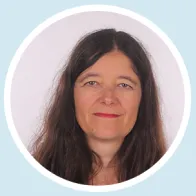
Viviane Bremer
Dr. Viviane Bremer is a medical epidemiologist. Originally from Luxemburg and alumnus of the German FETP programme, she has been working in surveillance of sexually transmitted infections and HIV since 2001 at the Robert Koch-Institute (RKI). Between 2008 and 2012 she was the head of the EPIET programme at ECDC. After returning to RKI in 2014, she was appointed the head of the Unit for HIV/AIDS, STI and Bloodborne Infections, and in 2023 as the Deputy Head of Department for Infectious Disease Epidemiology. She has authored numerous articles in the field of infectious disease epidemiology. She is head of the WHO European Region Collaborating Center for Viral Hepatitis and HIV at RKI that is supporting WHO in reaching the elimination and control targets for HIV, STI and hepatitis.
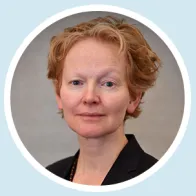
Susan Hahné
Susan Hahné is an infectious disease epidemiologist, public health specialist and medical doctor. Her passion for infectious disease epidemiology started when she did an EPIET fellowship and during her subsequent training with the UK Faculty of Public Health. Her work has been mostly focused on surveillance, outbreak investigation, research and teaching focused on the epidemiology and control of vaccine preventable diseases. Equity of vaccination programmes is one of her special interests. She has published over 150 peer-reviewed papers, contributed to a number of book chapters and supervised several PhD students. She is currently senior medical epidemiologist at the RIVM’s Centre for Infectious Disease Epidemiology and Surveillance, in the Netherlands. In addition, since 2024, she is Editor-in-Chief of Epidemiology & Infection.
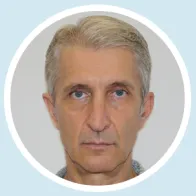
Adrian Stoica
Adrian Stoica from Romania is a medical epidemiologist trained in epidemiology applied to public health with over 30 years of experience working mainly on surveillance and control of vaccine preventable diseases at national and international levels.
Currently serving as senior medical epidemiologist on the surveillance and control of vaccine preventable diseases in Romania, he coordinated the WHO-led immunization activities of the EU-funded project ‘Strengthening health systems resilience in the Western Balkans’ during September 2022 – June 2025. Prior to this WHO position, he had been working mostly on surveillance and control of vaccine preventable diseases in Romania while also serving as a WHO consultant for the surveillance and control of vaccine preventable diseases in various countries of South-East Asia and the European region since 2003.
During 2000 – 2002 he served in the US Centers for Disease Control and Prevention ‘Epidemic Intelligence Service’ supporting South Carolina State Department of Health and Environmental Control in the prevention and control of infectious diseases. The included the epidemiological investigation of a gastroenteritis outbreak in four South Carolina prisons affecting 688 inmates in 2001 which was reported in US CDC’s MMWR 2002, 51(51);1149-1152 and the active surveillance designed in the investigation of the inhalational anthrax case in CT was described in Emerging Infectious Diseases 2002; 8(10):1078-1082.
Plenary F: Beyond numbers: humanising public health to address health inequities
Day 3 - Friday 21 November 15:45-16:30
Moving beyond traditional approaches, public health systems need to become more resilient and inclusive by recognising that meaningful evidence extends beyond statistics to include lived experiences and community voices.
This session features Grazia Caleo and Elburg van Boetzelaer, bringing together experiences from EU and humanitarian settings. The discussion will explore how evidence can be communicated in accessible and humanising ways, demonstrating how data can be transformed into storytelling and art. Focusing on vulnerable populations such as children and the elderly, speakers will address how data-driven, inclusive strategies can help close healthcare access gaps and empower communities to co-create solutions.
Chairs
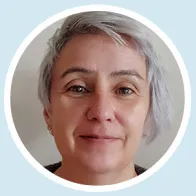
Alicia Barrasa

Piotr Kramarz
Speakers

Grazia Caleo
Dr. Grazia Caleo, is a Medical Doctor and Public Health Specialist with over 15 years of experience in humanitarian and Global Health. She previously led the Social Science Team at Médecins Sans Frontières (MSF), where she coordinated a multidisciplinary group of anthropologists, child protection specialists, mental health professionals, and community engagement advisors.
Dr. Caleo has designed and led public health and research initiatives across diverse settings, including Haiti, the Democratic Republic of Congo (DRC), the Central African Republic (CAR), Guinea, Zambia, Niger, Bangladesh, and Sierra Leone. Her work has focused on outbreak response, immunization, maternal and child health, occupational health, child labour, and health systems strengthening in complex emergencies.
She holds a Master’s in Epidemiology and a PhD from the London School of Hygiene and Tropical Medicine, as well as a specialization in public health. A former EPIET fellow, Dr. Caleo has collaborated with the World Health Organization (WHO) and CDC/Stop Polio, contributing to emergency responses in Haiti and Chad.
In addition to her public health work, she is the author of The Secret of the Bush, a children's book that has been included in UK school reading lists. She is currently completing a Master’s in Child Rights at King’s College London, further deepening her focus on child protection in humanitarian settings.
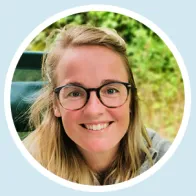
Elburg van Boetzelaer
Elburg is a public health professional specialised in humanitarian health emergencies with over a decade experience working in humanitarian crises across the world including in DRC, South Sudan, Iraq and Bangladesh. She has worked as an epidemiologist with the International Rescue Committee, Save the Children, WHO and Medecins sans Frontieres. Elburg holds an MPH from Columbia University and a PhD from Utrecht University focusing on the healthcare rights and needs of older people in humanitarian crises. She currently works as an Epidemiology Advisor with Medecins sans Frontieres.
